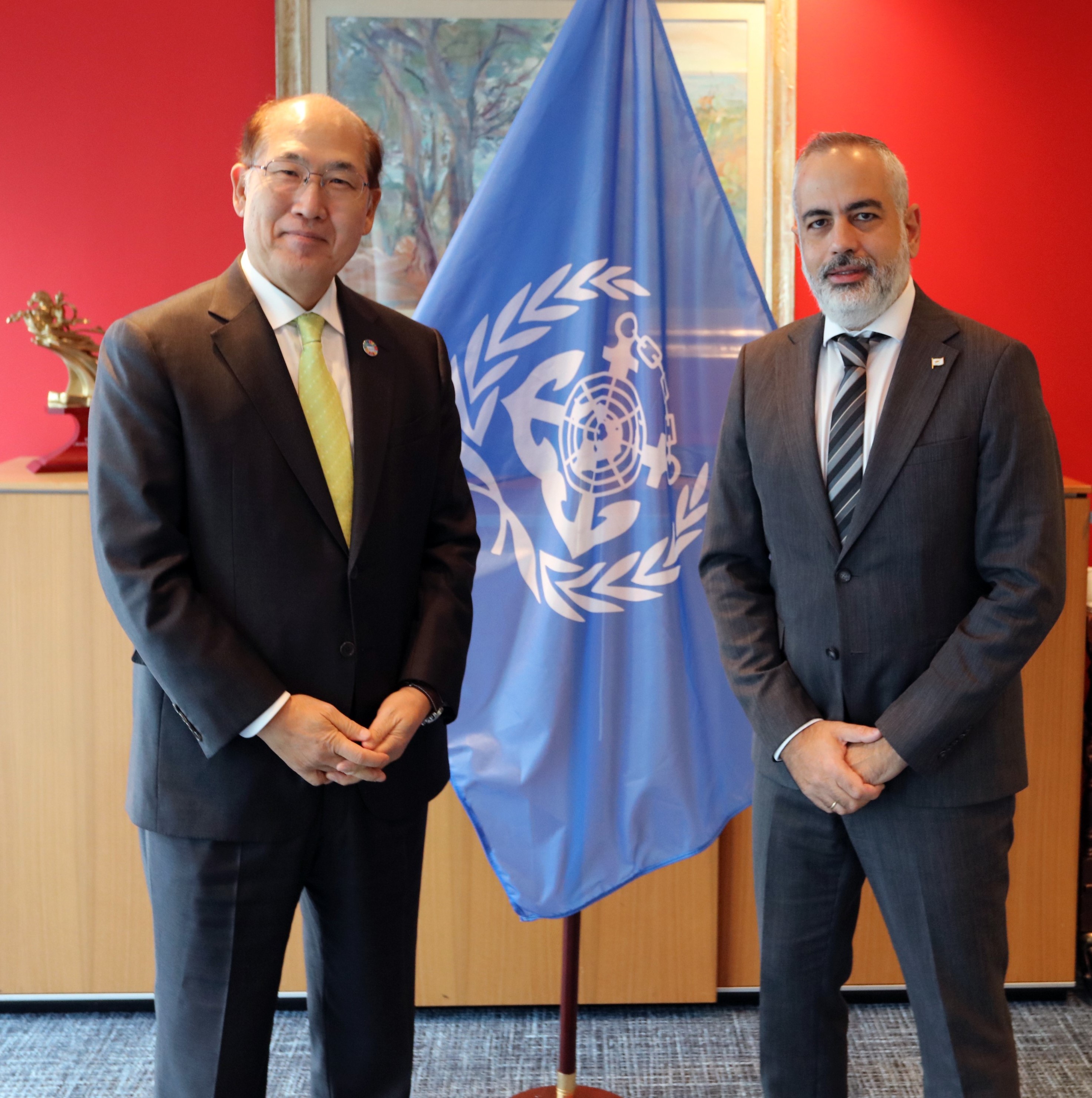Mr. President, Your Excellencies,
Distinguished Heads and Members of Delegations,
Mr. Secretary-General, Ladies and Gentlemen, Dear Colleagues,
The outbreak of the pandemic has disrupted our lives and inevitably challenged the aspirations we had when we concluded the previous session of the Assembly.
Despite the never-ending difficulties, the Organization, its members, and the good office of the Secretary-General with their strong efforts and initiatives have managed to keep the world seaborne trade flowing and protected the supply chain, including those of food, energy, and medicine.
We are thankful to the other members for accepting to continue the work of the Organization remotely, even with the shortcomings which have transpired.
We are also appreciative of the actions taken by the Secretary-General to protect all the staff of the Organization, bearing in mind the Host State advice, and to ensure the continuation of services provided.
It is obvious that the emerging public expectations is urging the maritime transport sector to contribute to efforts to arrest the climate changes much more than the global proportion it causes.
New and emerging environmentally friendly technologies have the potential to profoundly transform ships. This transformation can improve the environmental sustainability of the sector, its operational efficiency and, in general, reduce the impact of ships on the climate, whilst allowing the time needed for developing alternative fuels and methods of propulsion.
Towards reaching such an environmentally sustainable path, it is essential for the IMO to identify the alternative measures and technologies to be applied. This is particularly critical, in view of the expected impact on ships which are already in service and need to dependent on them in carrying the world seaborne trade.
The pandemic has highlighted and put into sharper focus the global and central role of the maritime transport sector. We owe this primarily to the seafarers which are the key and essential workers of the industry.
Cyprus, on its part has been facilitating crew changes and repatriation since May 2020 and is applying a national vaccination plan for seafarers.
I was pleased to learn that the recent extraordinary session of the Council has decided to propose to the Assembly:
(1) the adoption of a resolution on Comprehensive action to address seafarers’ challenges during the pandemic;
(2) the addition in the Strategic Plan and Strategic Directions for 2018 to 2023 of a new direction on the human element which, includes fatigue management; fair treatment of seafarers; and the important role of gender equality; and
(3) the adoption of a resolution recognizing the 18 May as an IMO proclaimed International Day for Women in Maritime.
Mr. President, the list of subjects for which someone can speak is not ending. All of them have their own importance and merits whether it relates to safety, digitalization, cyber security; fraudulent registration practises; to mention a few.
All of us, including the Organization, must make a meaningful contribution for achieving the aims and objectives of the United Nations 2030 Agenda of Sustainable Development and the Sustainable Development Goals.
We serve and derive our livelihood from the sea and we have to demonstrate a genuine understanding of each other’s priorities and to foster diversity and inclusion.
Cyprus’ recently adopted strategic vision for the sector, aims to promote a positive agenda for global shipping by promoting a more Sustainable; more Extroverted; and more Adaptable shipping sector in line with IMO objectives. I strongly believe that by working together and adhering these principles we will be able to deliver whilst promoting the significance of shipping to the civil society.
I wish the thirty-second session of the Assembly ever possible success.
Thank you Mr President.
